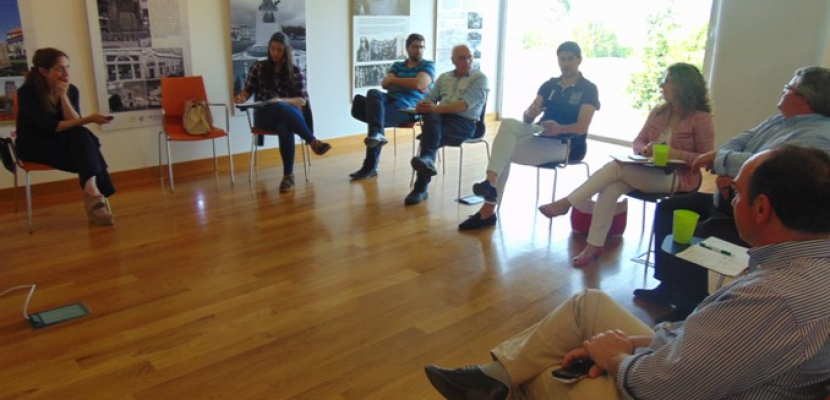Image

ASA – Ave Social Angels
Published on 08 April 2019

Portugal
Norte
This is the good practice's implementation level. It can be national, regional or local.
About this good practice
In a context of high unemployment, between 2014 and 2016, especially youth unemployment, it was developed in the municipality of Póvoa de Lanhoso the pilot experience "Social Angels - Entrepreneurial Community” . Taking into account the good results obtained, it was decided to replicate this experience throughout the region of Vale do Ave through the Project ASA - Ave Social Angels.
So, the initiative ASA arises from the need to respond, more efficiently and effectively, to the problem of youth unemployment.
The solution proposed by ASA - Ave social Angels is based on the following phases: a) creation and mobilization of a new model of entrepreneurial communities; b) awareness-raising, and engagement of the beneficiaries, based on practical approaches (entrepreneurial hackathons, bootcamps, pop-up markets), which will constitute a first moment of immersion in thematic and entrepreneurial processes, filter and process of selection of the participants to be involved in the following phase of intervention; c) the process of training of the beneficiaries for employability and entrepreneurship in relation to a set of relevant skills to increase their employability. The main beneficiaries of the project are Young short-term unemployed (16-34 years old, including temporary NEETs with basic skills and qualifications to be engaged in entrepreneurial processes).
So, the initiative ASA arises from the need to respond, more efficiently and effectively, to the problem of youth unemployment.
The solution proposed by ASA - Ave social Angels is based on the following phases: a) creation and mobilization of a new model of entrepreneurial communities; b) awareness-raising, and engagement of the beneficiaries, based on practical approaches (entrepreneurial hackathons, bootcamps, pop-up markets), which will constitute a first moment of immersion in thematic and entrepreneurial processes, filter and process of selection of the participants to be involved in the following phase of intervention; c) the process of training of the beneficiaries for employability and entrepreneurship in relation to a set of relevant skills to increase their employability. The main beneficiaries of the project are Young short-term unemployed (16-34 years old, including temporary NEETs with basic skills and qualifications to be engaged in entrepreneurial processes).
Expert opinion
The “Social Angels” practice has already shown promise before as the pilot to this practice has been run in the municipality of Póvoa de Lanhoso and is now runt throughout the region of Vale do Ave.
This practice fights rural unemployment by increasing the employability and entrepreneurial spirt of young unemployed people. This is achieved through collaborative and participatory dynamics.
As the practice has seen promising results in Portugal, it could be of interest to other regions struggling with youth unemployment as well.
This practice fights rural unemployment by increasing the employability and entrepreneurial spirt of young unemployed people. This is achieved through collaborative and participatory dynamics.
As the practice has seen promising results in Portugal, it could be of interest to other regions struggling with youth unemployment as well.
Works at
Interreg Europe Policy Learning Platform
Resources needed
This project has a budget of 394.119,95€ for 24 months
Evidence of success
This initiative is still ongoing so it has no results to show. However, the pilot experience “Social Angels” has had the following results: 9 new companies created; 13 investment intentions of the entrepreneurial community; numerous partnerships created between the companies that integrate the entrepreneurial community; de-bureaucratization of business regulation processes, training of the territory and its agents.
Potential for learning or transfer
The pilot experience “Social Angels” was innovative in promoting youth employability in a broad context of mobilization and collaboration among all community agents. The integrated nature it acquired allowed a new look and intervention on the territory and on the phenomenon of youth unemployment. As referred by the external evaluation, the following two dimensions that the project developed contributed to maximize its results and impacts, as well as to generate greater sustainability, namely:• The capacity to interconnect the social and economic dimensions of the problems to fight and of the responses to build, an essential approach to employability issues which requires a collective action
• The capacity to move from the promotion of a portfolio of activities (professional training, technical advice, project monitoring, promotion of participatory dynamics) to an integrated and participatory dynamic of responses and solutions, with a focus on concrete results in terms of employability
• The capacity to move from the promotion of a portfolio of activities (professional training, technical advice, project monitoring, promotion of participatory dynamics) to an integrated and participatory dynamic of responses and solutions, with a focus on concrete results in terms of employability
Further information
Website
Good practice owner
You can contact the good practice owner below for more detailed information.
Organisation
SOL DO AVE – Associação para o Desenvolvimento Integrado do Vale do Ave

Portugal
Norte
Contact
Project manager
